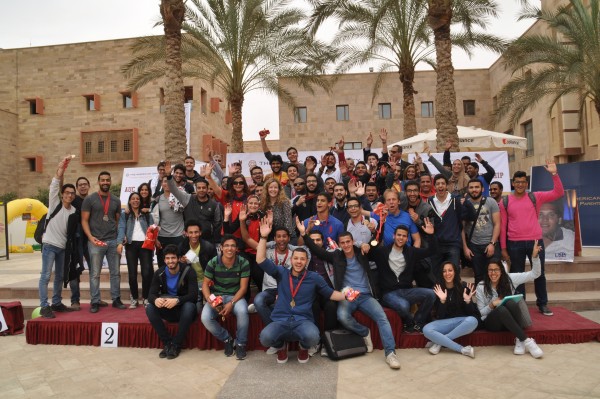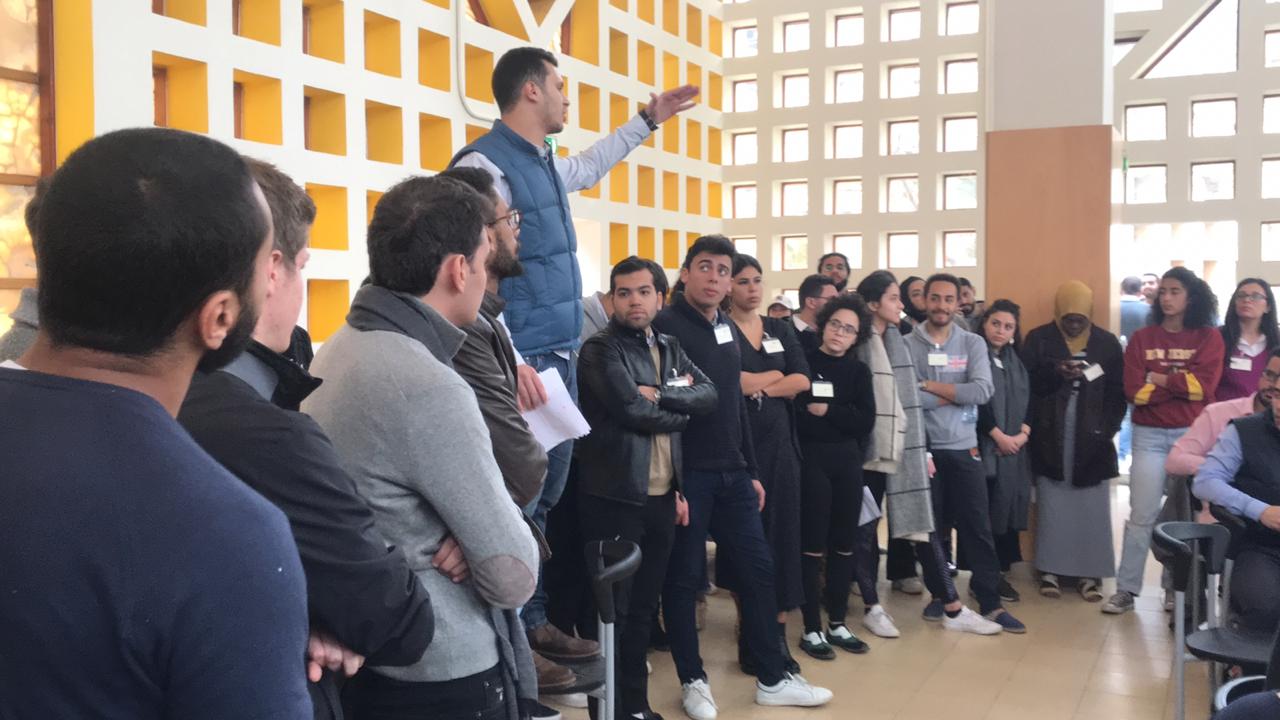President Ricciardone Discusses the Faculty Handbook
Faculty Handbook:
Akkawi: What is the role of the faculty senate now and post-all these meetings because, during the meetings, I know that some of them expressed feeling low morale, feeling that they weren’t involved, that their role was diminished. Is this true or what is your take on that?
I accept as valid what people feel and perceive. I never say somebody is wrong to perceive what they do.
Ricciardone: But what is their role now?
The role of the senator is clear in terms of AUC’s standing. I mean our bylaws and so forth. The bylaws don’t mention the Senate but the authority of the Board of Trustees has been clarified. Again they say never waste a good crisis to the extent this was a crisis, the trustees have now clarified and removed any ambiguity about the authority to administer the university.
It’s not just authority in the sense of the ability to give orders. It’s the responsibility. It’s the accountability. The trustees are accountable when there’s a lawsuit over tuition or over a tenure case or something like that. I am accountable as president.
Nobody in the Senate is accountable. If there’s a system’s failure, if there’s an I.T. failure, if there’s an H.R. system’s failure, if there’s a budget deficit, if there is a lawsuit over tuition nobody sues the Senate.
No senator is accountable for decision. So there’s a big difference between the authority and the responsibility and accountability of the Senate. It is a really important advisory body that has unique expertise and connectivity across our constituencies. So it’s important. It has a role that is vitally important to the well-being and the good order and discipline and running of the university. But at the end of the day, it does not have the authority to take to direct resources, to take policy decisions. It can make recommendations and it can give advice which is really important and really valuable and really necessary. But at the end of the day it is a different thing from the administration and the Board of Trustees. So I think that’s been clarified.
What called this into question was the whole faculty handbook.
Has there been any discussion on declaring the fact that can look of 2015 as binding as this was one of the requests I understand from the way forward resolution?
Yes, there’s been in fact way too much discussion of it. That’s been the problem. When it was cast in those binary terms, ‘Is it binding or not binding?,’ I think it led us into a kind of blind alley and the question was posed to me that way. Members of the Senate pose it to me that way in my very first senate meeting and I tried to clarify the point that, we need a faculty handbook that accurately reflects the terms and conditions of employment for faculty members. We need to have that clear. It’s a policy document that exists that every good organization has. There needs to be some flexibility. It needs to be changeable in response to changing conditions and it has to be a point of reference in people’s contractual agreements with the employer, no question. So it is valid. What is more deeply binding than anything is our shared commitment to this university whether we’re faculty, staff, or trustees.
People kept on ‘but is it binding, is it binding, is it a part of the contract?’ When we looked into it, we found out that first of all there were contradictions. There were ambiguities. We didn’t have a general counsel at the time that was drafted. There was no legal review of that at the time it was drafted. So it shouldn’t be surprising that there are errors that don’t comply with U.S. law and wouldn’t hold up in court.
In particular, there’s an issue about the aggregation to the faculty senate, a fiduciary responsibility that belongs exclusively to the trustees. That part is not legal. That part does not hold.. cannot hold, but just because that part doesn’t work doesn’t mean the rest isn’t needed, useful, and in fact, accurate enough, as a statement of commitments and requirements in both directions.
So, this goes back to your question, is it binding or not, that part that says the Senate has the authority of the trustees, or implies that at least, nothing can be changed without the Senate approving it, that part is not binding. It is legally not right, but that’s an important issue. We clarify that and the rest that captures the benefits and pay and compensation. We had a clarifying statement by the trustees in January of last year of 18 saying we’re not looking to take away any compensation and benefits from people who are currently enjoying those, don’t worry, we’re committing to that. So let’s park that and let’s work on getting a first class faculty handbook together.
This is currently what the university is working on?
So I’ve been here two and a half years. It was an issue before I arrived between the board of trustees, the previous administration and the faculty. Going back to 2015. So when I came, it’s something I set to work on with the previous provost and our current excellent provost.
We engaged the top United States expert on faculty handbooks, to serve, not the administration to serve the working group consisting of faculty members, members of the Senate including Senate leadership and several trustees, myself and the provost. As a practical matter, it’s been the provost leading it with the faculty members and I’ve come in from time to time with the trustees to to support.
That process predated me but when I arrived, we tried to strengthen it. We had a change in the chairman of the board last year but that chairman and the current chairman …
Atef Eltoukhy and now Richard Bartlett?
… Yes. They had been personally involved, as has our vice chairman who is one of the United States top academics. He is the provost of Caltech, California’s Institute of technology. You don’t get a higher ranking, more credible academic expert than that. We have others on the academic affairs committee who have been involved from George Washington University for example. So there has been a process in place. We’ve taken our time, it’s academia. Things take time.
The first real meeting of that committee with the outside expert, who has read 200 faculty handbooks and sorted out a much worse crisis with New University in New York 10 years ago, that started in April of 2017 and through various ups and downs, time has passed.
With this latest, again mini crisis, if you want to call it a crisis, the trustees have clarified who has what authority and have directed that we should bring the consultations to a close and have a good solid draft. We hope it will be one that everybody agrees on in the next couple of weeks so that we can present something.
In the next faculty senate meeting?
We want to present it of course to the Senate, but I want to have this expert review in the United States because I want this to be a model. I’d love for people who are also struggling with faculty handbooks around the world to take the AUC example as an inspiration. ‘How did AUC solve this issue of faculty compensation versus quality of instruction, quality research, allocation of resources, legal standings, legal authorities?’
You know, this is not peculiar to AUC. In most of American higher ed, Senates are considered faculty Senates rather than university Senates because they’re dominated by faculty, and handbooks like this focus on academic affairs, and senates focus on academic affairs, quality of instruction, quality of recruitment and retention of faculty and so forth.
So, I’m very optimistic. We’ve got a process. We’ve got a vision. We’ve put in two years of a lot of effort into it. There’s been a lot of emotion and so forth. That’s fine. It’s normal. I’m very optimistic that we’re going to have an exemplary handbook by the time we’re effective. I dare hope now, I always avoid predictions but I really dare to hope that we’ll have this resolved in a way that people will say, ‘boy this was painful but was worth it. We’ve come out with something we all we all can live by.’



